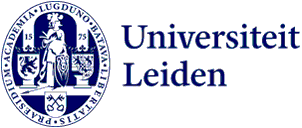Lecture
SAILS Lunch Time Seminar
- Date
- Monday 10 January 2022
- Time
- Address
- Online only
James McAllister - Hum - Information Content of Empirical Data: Methodology and Metaphysics
James W. McAllister Institute of Philosophy, Leiden University
Abstract:
Empirical data -- the results of observations and measurements -- contain information about the world. But how much information do they contain, and what does this tell us about the structure of the world? A traditional reply to these questions is that an empirical data set contains a single pattern, and that this shows that the world has a unique structure. This reply suggests that scientific laws and theories constitute, in the terms of algorithmic information theory, a lossless compression of empirical data. I argue to the contrary that scientific practice depends on decomposing empirical data sets into two additive components: a simple pattern, which corresponds to a structure in the world, and a residual noise term. This view leads to two intriguing implications. First, if the noise term is algorithmically incompressible, then empirical data sets as a whole are also incompressible. Second, since it is possible to decompose a data set into a pattern and noise in infinitely many different ways, and since each of these decompositions has equal claim to validity, then empirical data are evidence that the world contains an infinite amount of structure.
